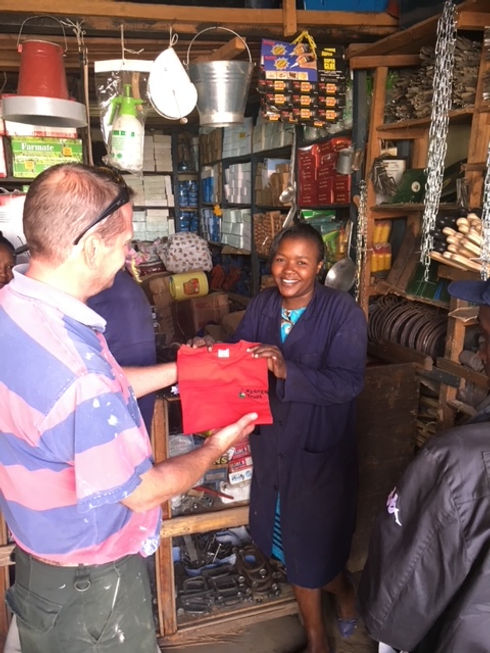Kyangala - overview
65 miles southeast of Nairobi, population 15,000
Kyangala is remote, rural and almost entirely dependent on subsistence farming. The frequent failure of the seasonal rains results in severe famine and food emergencies. The educational facilities, are extremely poor. There is a lack of basic medical care and provision at a time when HIV/AIDS is a continuing concern. In 2020/21 the effects of the pandemic exacerbated the problems of poverty.
While urban locations in Kenya enjoy an improved standard of living, rural areas are being left behind. State resources do not adequately reach communities like Kyangala. However, despite struggling with the day-to-day demands of living in such harsh poverty, the people of Kyangala work tirelessly to maximise and utilise whatever they can in order to provide a better life for their children.

Our Approach
With no other international charities working in the area, the Kyangala Trust takes a broad remit, focussing on meeting both the day-to-day needs of the people, and working to support long-term, sustainable improvements in the quality of education and health care.
The Trust operates only with volunteers, to ensure that every pound denoted to the Trust goes directly to the people of Kyangala.
How it started
Benedict Msola, originally from Nairobi, was living in London with his wife and family. As a result of a visit to see his mother in Kyangala in 2011 Benedict returned to London burdened by the scale and mix of problems facing the community and with a desire to “do something”.
Benedict used to work with the Salvation Army as a “children’s advocate” and through his work colleague Andrea Harrison, he met John Harrison a civil engineer and project manager with a long standing interest and involvement in international development.
The two of them visited Kyangala to see first-hand the problems and to meet the local community leaders to explore how they might help.
As a result the Kyangala Trust (UK) was formed as a registered charity.


Achievements
The Kyangala Trust was set up in 2009 to assist the people of Kyangala. The charity was established following a meeting of two of the current Trustees, Benedict Mwendwa who was born, grew-up and still has family in Kyangala, and John Harrison, a civil engineer in the UK.
To date, in partnership with the local community in Kyangala, we have funded and undertaken the following projects:
-
Sunk 3 wells and provided water storage tanks.
-
Provided an incinerator at the medical centre.
-
Built additional classrooms, toilets and security fencing for the girls’ school.
-
Refurbished the classrooms and built a kitchen facility, provided books, pens/pencils and computers in the primary school.
-
Refurbished the dormitory for 150 boys in the boys’ school.
-
Provided shoes, clothes and blankets, paid for school and medical fees and provided food and grain for the community in general.
In addition, we set up a community chicken farm as an income generator and a sisal bag business for the community.
Sisal hand bags
Sisal bags are entirely hand made from natural materials, namely the leaves of the sisal plant that grows in Kenya and can be found along the roadside and in the countryside surrounding Kyangala .
The following set of photographs taken in Kyangala show the process used to make the bags which are entirely environmentally sustainable and made using natural materials:
Stage 1 : Harvesting the leaves off the sisal plant and transporting on foot to the village.
Stage 2: Stripping the leaves to extract the sisal fibre and dying the fibre.
Stage 3 Creating the the bags by weaving the fibre and attaching leather or fibre handles
Completed Sisal bags , that can be bought from Kyangala Trust for between £40-£60 depending upon type and size.























